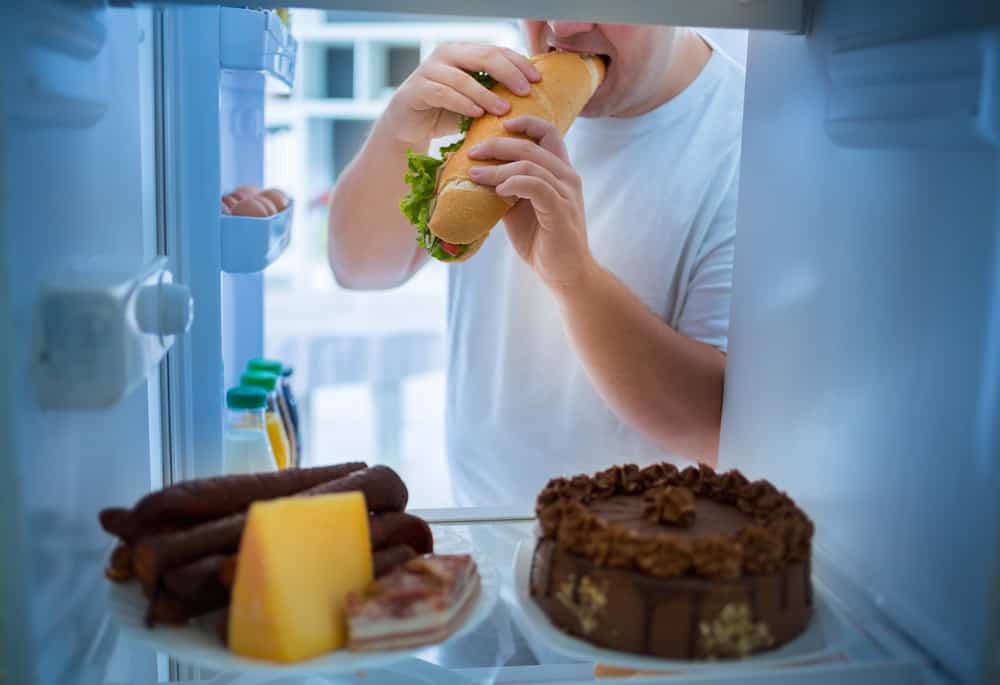Contents:
- Medical Video: 7 Parenting Tips to Deal With a Naughty Child
- 1. Schedule a meal with family
- 2. Make regular meal times
- 3. Make the meal time as comfortable as possible
- 4. Stay positive
- 5. Keep your child interested
- 6. Involve children in the food preparation process
- 7. Don't forget to consider drinking children
Medical Video: 7 Parenting Tips to Deal With a Naughty Child
Most children must have had difficulty eating. Usually, children only consume certain types of food and refuse food that they don't like. Sometimes he eats a lot of food this week, and his appetite decreases the following week. This is normal during the development period, usually children begin to experience this at the age of 2 years.
Your child will eat foods he knows and don't eat foods he doesn't know. He needs time to learn that foods that are unfamiliar according to him are safe and delicious to eat. He will believe that by seeing you and the people around him eating the unknown food.
The following are tips for dealing with children who have difficulty eating.
1. Schedule a meal with family
Eat with your family as much as possible. This is a good time for children to learn various types of food. Maybe this is difficult for you and your partner who works, but you can try it whenever you and your partner can.
At this time, offer children various types of nutritious food and you should also eat the same foods as children. Children will learn to eat new foods by seeing and imitating their parents and people around them. You can help get the kids to eat and offer one by one the food on the table. If your child doesn't want to try new food, don't scold him, you can offer another time. Children sometimes need a long time to receive new food.
2. Make regular meal times
It is recommended that the child eat 3 main meals and 2 alternating meals between the main meals. This also simultaneously teaches children about routines, so the child knows what to do.
Feed the child at the right time. If your child is too tired, maybe he will choose to sleep and refuse to eat. It's best to give snacks or milk before the child naps. Ask everyone at home or who cares for your child to follow your routine to apply to children.
3. Make the meal time as comfortable as possible
You can invite your child to eat with his friend, you can invite a few friends home to eat together. Your child will eat more with his friends.
When eating, keep children away from television, pets and toys. This makes it difficult for children to concentrate on eating. Also, do not anger or force the child during meals, this will make his appetite disappear. Let the child take his own food with his hand if he wants. This gives him the opportunity to learn various food textures. Children will also feel more comfortable to eat alone and this is a learning responsibility for children.
4. Stay positive
Tell your child about how you enjoy the food you eat, of course, foods with balanced nutrition. You are a role model for children, so if you are passionate about telling the taste of the food you eat, your child may be interested in trying it.
Also tell me that you are very happy to see him eating well. He will be happy to hear your praise, so the child is eager to eat his food. If you only pay attention to the child when he is not eating, maybe he will refuse to eat so that you pay attention to him.
If the child does not spend his food and leave it for a long time, take the child's plate without commenting to the child. Do not force the child to eat the food.
5. Keep your child interested
As a snack in the afternoon and evening, you can offer a taste of savory foods and sweet fruits. Sometimes children get bored with just the taste of one food, and want to try another new taste. The more variety of foods that children eat, of course, will complement the nutrients that children need.
However, never promise a sweet child a gift. Parents will usually offer sweets as a gift if the child spends his food or if the child eats vegetables. This will make children's interest in other foods other than sweet foods decrease. We recommend that you never make food as a gift or punishment for children.
Give children small portions of food according to their abilities. If the child is offered large portions of food, the child can lose appetite before eating it or the child will not be able to eat the food. Give children to eat small portions, so that children can spend it, and then you praise it, will have a better impact on the child.
If the child refuses to eat continuously, you can invite him to eat outside, such as a restaurant that provides nutritious food that children like. Every now and then this isn't your problem. However, do not let children eat too much sweet foods and junk food, the child's body requires nutritious food not food that is empty of nutrients.
6. Involve children in the food preparation process
If the child is a little big, invite him to help you shop and let him choose the food he wants. After that, you can also invite him to help you in the kitchen, or just help you prepare food at the dinner table. Activities like this can help encourage positive development of a child's eating behavior. In this way, he can know various types of food and can find new food for him so he will be interested in trying it.
7. Don't forget to consider drinking children
Drinking too much milk or drinking juice makes a child full, so the child's appetite decreases at mealtime. You should give your child milk between meals, not just before meals. It's also a good idea to limit your child to drinking juice no more than ½ or ¾ cup per day and don't offer juice to babies less than one year old. Although juice contains many vitamins and minerals that are important for the body, too much juice means too much sugar and fruit juice contains less fiber and some nutrients than those found in the fruit itself.
READ ALSO
- 8 Tips for Children to Eat Enough
- 8 Parents' Mistakes in Feeding Children
- What Happens If Children Often Eat Instant Noodles












